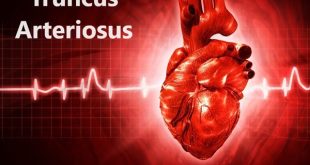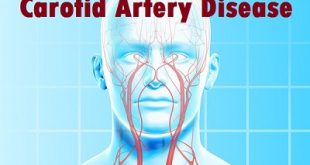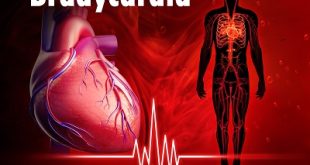What is Cardiomegaly?
An enlarged heart is medically known as cardiomegaly. Cardiomegaly can be caused by a number of different conditions, including diseases of the heart muscle or heart valves, high blood pressure, arrhythmias, and pulmonary hypertension. Cardiomegaly can also sometimes accompany longstanding anemia and thyroid diseases, among other conditions.
So-called infiltrative diseases of the heart, for example, in which abnormal proteins (amyloidosis) or excess iron (hemochromatosis) accumulate within the tissues of the heart, can also cause an enlargement of the heart. Infections, nutritional deficiencies, toxins (such as alcohol or drugs), and some medications have been associated with cardiomegaly. In some situations (for example, pregnancy), there can be a temporary increased demand on the heart, resulting in some temporary enlargement.
Types of Cardiomegaly
There are two types of cardiomegaly:
Dilative
The heart can become enlarged due to dilation of the myocardium. An example is Dilated Cardiomyopathy (DCM), which is the most common form of non-ischemic cardiomyopathy. In DCM, the heart becomes weakened and enlarged, and congestive heart failure (CHF) quickly follows. Signs and symptoms are those of left and/ or right heart failure, and signs on autopsy would include central hemorrhagic necrosis in the liver
Hypertrophic
Just as our skeletal muscles hypertrophy (grow in size) in response to increased demand, cardiac muscle undergoes hypertrophy when placed under a high workload for a prolonged period of time. Some cardiac hypertrophy is normal and reversible, such as that seen in athletes and pregnant women. Pathologic hypertrophy is the result of diseases that place increased demand on the heart, such as chronic hypertension, myocardial infarction, and valvular damage. Left ventricular hypertrophy (LVH) is the most common type of hypertrophic heart disease. A common cause of LVH is chronic hypertension, which increases the afterload on the left ventricle.
Causes of Cardiomegaly
An enlarged heart can be caused by conditions that cause your heart to pump harder than usual or that damage your heart muscle. Sometimes the heart enlarges and becomes weak for unknown reasons (idiopathic).
A heart condition you’re born with (congenital), damage from a heart attack or an abnormal heartbeat (arrhythmia) can cause your heart to enlarge. Other conditions associated with an enlarged heart include:
- High blood pressure. Your heart may have to pump harder to deliver blood to the rest of your body, enlarging and thickening the muscle.
- High blood pressure can cause the left ventricle to enlarge, causing the heart muscle eventually to weaken. High blood pressure may also enlarge the upper chambers of your heart (atria).
- Heart valve disease. Four valves in your heart keep blood flowing in the right direction. If the valves are damaged by conditions such as rheumatic fever, a heart defect, infections (infectious endocarditis), connective tissue disorders, certain medications or radiation treatments for cancer, your heart may enlarge.
- A disease of the heart muscle (cardiomyopathy). As this thickening and stiffening of heart muscle progress, your heart may enlarge to try to pump more blood to your body.
- High blood pressure in the artery connecting your heart and lungs (pulmonary hypertension). Your heart may need to pump harder to move blood between your lungs and your heart. As a result, the right side of your heart may enlarge.
- Fluid around your heart (pericardial effusion). Accumulation of fluid in the sac (pericardium) that contains your heart may cause your heart to appear enlarged on a chest X-ray.
- Low red blood cell count (anemia). Anemia is a condition in which there aren’t enough healthy red blood cells to carry adequate oxygen to your tissues. Untreated, chronic anemia can lead to a rapid or irregular heartbeat. Your heart must pump more blood to make up for the lack of oxygen in the blood.
- Thyroid disorders. Both an underactive thyroid gland (hypothyroidism) and an overactive thyroid gland (hyperthyroidism) can lead to heart problems, including an enlarged heart.
- Excessive iron in the body (hemochromatosis). Hemochromatosis is a disorder in which your body doesn’t properly metabolize iron, causing it to build up in various organs, including your heart. This can cause an enlarged left ventricle due to weakening of the heart muscle.
- Rare diseases that can affect your heart, such as amyloidosis. Amyloidosis is a condition in which abnormal proteins circulate in the blood and may be deposited in the heart, interfering with your heart’s function and causing it to enlarge.
Risk Factors of Cardiomegaly
Enlarged heart risk factors can include:
- Anemia: A lack of red blood cells that carry oxygen to the blood can cause the heart to beat faster and enlarge the heart.
- Congenital heart disease: People can be born with a heart that has an abnormal structure that may cause an enlarged heart.
- Connective tissue disease: Conditions like Marfan Syndrome can contribute to an enlarged heart.
- Excessive iron in the body: When iron is not metabolized, it can collect in the heart and enlarge the left ventricle.
- Family history: If a patient’s parent or sibling has an enlarged heart, the risk increases for developing the condition.
- Fluid around the heart: Fluid can collect around the heart and cause the heart to pump harder, which causes enlargement.
- Heart attack: A previous heart attack can lead to an enlarged heart.
- Heart valve disease: Enlargement can happen when heart valves are affected by rheumatic fever, a congenital defect, infections, medications or radiation treatment.
- Rare diseases: Certain conditions, including amyloidosis, can result in a buildup of protein that enlarges the heart.
- Thyroid disorders: An overactive (hyperthyroidism) or underactive (hypothyroidism) thyroid can cause an enlarged heart.
What are the symptoms?
Sometimes an enlarged heart doesn’t cause any symptoms. When symptoms do occur, they can include:
- Shortness of breath
- An irregular heart rhythm (arrhythmia)
- Swelling in the legs and ankles caused by fluid buildup (edema)
- Fatigue
- Dizziness
Symptoms that indicate a medical emergency include:
- Chest pain
- Trouble catching your breath
- Pain in your arms, back, neck, or jaw
- Fainting
Complications after the arrival of Cardiomegaly
If an enlarged heart is not diagnosed and treated early, complications can occur, including:
- Blood clots: Blood clots can weaken the heart and affect its ability to pump blood through the body. If a blood clot breaks loose, it could block a blood vessel anywhere in the body.
- Cardiac arrest and sudden death, stroke or pulmonary embolism: If a blood clot breaks off, it can cause a heart attack, stroke or pulmonary embolism in your lungs.
- Heart failure: As the left ventricle enlarges, the risk for heart failure increases. When heart failure occurs, the ventricles in the weakened heart are stretched and can’t efficiently pump blood.
- Heart murmur: Blood can flow back into mitral and tricuspid valves that do not close properly and create a sound called a heart murmur. Although it may not be harmful, a physician should monitor it regularly.
How is it diagnosed?
Female doctor with blood sample for cardiomegaly
Diagnostic tests may include one or more of the following:
- Blood tests: These tests can show up markers in the blood that indicate an issue.
- Stress test: A stress test involves working out on a treadmill or exercise bike while hooked up to heart and blood pressure monitors. Results demonstrate heart function during physical activity.
- X-ray: A chest X-ray can show the condition of the heart and lungs. Further tests will usually be needed to determine the cause.
- Echocardiogram: This test uses sound waves to produce a video image of the heart to allow doctors to assess the state of its chambers. It demonstrates any enlargement, congenital heart disease, damage from heart attacks, and the efficiency at which the heart is pumping.
- Other imaging tests: A CT scan or MRI scan may be used to collect images of the heart and chest.
- Electrocardiogram (ECG): An ECG is used to record the heart’s electrical activity and to diagnose abnormalities in its rhythm.
- Cardiac biopsy: A tube is inserted into the groin and through the blood vessels to the heart. From here, a small sample of heart tissue is taken and analyzed.
Mild cardiomegaly is typically diagnosed through both a physical examination and additional tests.
How is cardiomegaly treated?
The treatment for cardiomegaly depends on the type of cardiomyopathy and the underlying disease process.
Fluid Control
Each type of cardiomyopathy interferes with the pumping function of the heart. As the heart fails, a patient typically experiences fluid overload. MayoClinic.com reports that the frequent use of diuretics can remove excess fluid from the cardiovascular system. Controlling a patient’s fluid volume helps maintain stable blood pressure and relieves the symptoms of shortness of breath, fatigue, and cough caused by cardiomegaly. The diuretics furosemide, spironolactone and hydrochlorothiazide can be used as treatments for cardiomegaly.
Blood Pressure Control
High blood pressure increases the workload of and strain on the heart and other organs like the kidneys. A treatment for cardiomegaly includes controlling blood pressure through the use of medications such as angio-converting enzymes and angiotensin-receptor blockers. For example, physicians may prescribe lisinopril, captopril or losartan to stabilize blood pressure and improve blood flow to the heart muscle and the kidneys.
Strengthen the Heart
Cardiomegaly weakens the heart muscle and reduces the ability of the heart to pump blood to the rest of the body. Treatment for cardiomegaly includes the use of beta-blockers and cardio glycosides to strengthen the pumping function of the heart. Another symptom of cardiomegaly is an elevated heart rate. Beta-blockers like metoprolol and cardio glycosides like digoxin reduce the heart rate. This action allows the heart to better fill with blood, which, combined with a stronger pumping action improves cardiac output.
Cardiac Resynchronization Therapy
When medications are not enough to control the symptoms of cardiomegaly, a pacemaker may be inserted to help synchronize the beating action of the heart. The authors of the 2006 edition of “Medical-Surgical Nursing: Critical Thinking for Collaborative Care” explain that a pacemaker that generates electrical impulses in both ventricles allows the heart to fill with blood and pump better. Patients with cardiomegaly often experience dangerous irregular heart rhythms. Physicians treat this problem with special pacemakers called implantable-cardioverter defibrillators, which detect and eliminate lethal heart rhythms by delivering an electrical shock directly to the heart.
Heart Valve Repair
If the cause of the cardiomegaly is a poorly functioning heart valve, the affected valve can be surgically repaired or replaced. Patients may receive a mechanical or biologic heart valve.
Heart Pump
A heart pump or ventricular assist device is a surgically implanted mechanical pump that takes over the work of the ventricles. This treatment for cardiomegaly is reserved for the sickest patients waiting for a heart transplant.
Heart Transplant
The final treatment option for cardiomegaly is a heart transplant. The wait for a heart is long due to the shortage of donors. Patients receive supportive care and symptom management until a donor’s heart becomes available.
Prevention
Knowing the risk factors and making lifestyle changes are the best ways to reduce the risk of developing cardiomegaly. Changes in lifestyle may include:
- Quitting smoking
- Exercising regularly
- Limiting sodium intake
- Maintaining a healthy weight and eating a healthy diet
- Managing stress
- Reducing or limiting alcohol and caffeine consumption
- Controlling diabetes
- Eliminating cocaine and illegal drug use
If you have a family history of cardiomegaly, be sure to share this information with a physician. This way you can have an evaluation to determine if you are already developing cardiomegaly, and you can begin to take preventative measures in advance.
 Diseases Treatments Dictionary This is complete solution to read all diseases treatments Which covers Prevention, Causes, Symptoms, Medical Terms, Drugs, Prescription, Natural Remedies with cures and Treatments. Most of the common diseases were listed in names, split with categories.
Diseases Treatments Dictionary This is complete solution to read all diseases treatments Which covers Prevention, Causes, Symptoms, Medical Terms, Drugs, Prescription, Natural Remedies with cures and Treatments. Most of the common diseases were listed in names, split with categories.








wow.thanks.the information you shared is very rich and life changing
This is highly educative and a must-read for all and sundry.
Thanks a billion.
as long as I received your messages I will not smoke again thanks.
This is very useful. my condition was described as cardiac spasm, when I was reading I missed it but saw the test ecg which I went through. right now am on ranolazone after taking five other types and I feel some relief
I went for an x-ray and the results came out to be pneumonia want can I do
We strongly advise you to consult a pulmonologist for appropriate treatment.
recently been having chest pain. just between the chest and stomach.
It might be due to GERD (Gastroesophageal reflux disease). Gas pain is commonly associated with stomach cramps, but some people feel gas pain in the chest and other parts of the body.
This type of pain can feel like tightness in the chest area. It might occur after eating a big meal or after eating certain foods